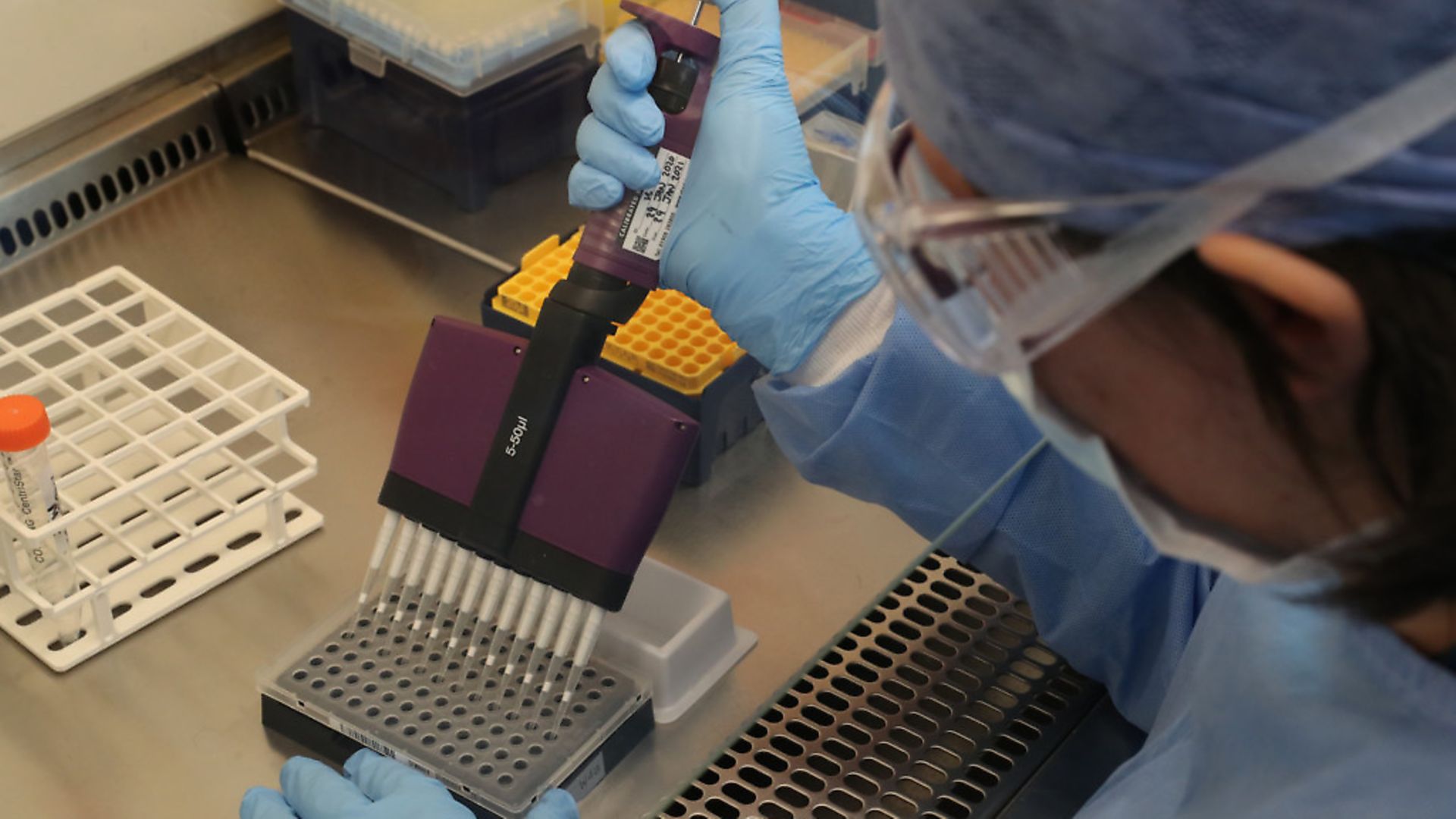
A Swiss pharmaceutical giant based in Germany has reportedly developed the world’s first successful coronavirus antibody test that produces ‘99.8% accuracy’.
The antibody test – which will be able to identify people who had coronavirus but could not get tested – has received emergency approval from the US Food and Drug Administration (FDA), making it the first such trial to receive that level of approval.
Developed by Swiss firm Roche in German laboratories in Penzberg, Bavaria, it is said to be ‘99.8% accurate’.
German health minister Jens Spahn told reporters: ‘This is not just a regional event – it’s an important international step in the fight against the coronavirus,’ adding ‘the solutions to the crisis will be scientific ones, and this is a major milestone.’
Germany has already ordered two million tests for May, and five million per month after that. Meanwhile, Roche has promised to invest €400 million in the Perzberg facility to boost production, which it hopes to get to 100 million tests by the end of 2020. The Bavarian government will also funnel in €40 million.
Spahn said: ‘Tests like these are important to find out what percentage of the population have been affected beyond the official numbers thus far’.
Germany has also set up the German Ethics Council – an ethics committee which will decide on the efficacy of ‘immunity passports’. Such proposals have been tipped as a way to get people who already had the virus back to work.
Germany Trade & Invest (GTAI) Health Expert Gregor Kemper pointed out that Roche’s announcement had been a long time in the making.
He said: ‘With the successful development of an antibody test with especially high specificity and selectivity, the investment Roche made in Penzberg over the last several years is paying off.’
He added: ‘It also shows that the medical research landscape in Germany is capable of coming up with quick solutions in crisis cases’.
Warning: Illegal string offset 'link_id' in /mnt/storage/stage/www/wp-includes/bookmark.php on line 357
Notice: Trying to get property 'link_id' of non-object in /mnt/storage/stage/www/wp-includes/bookmark.php on line 37






